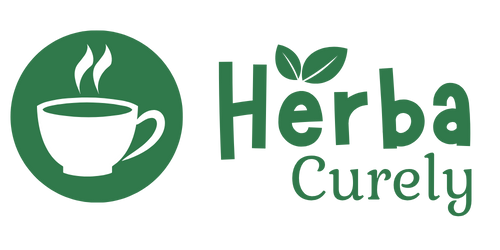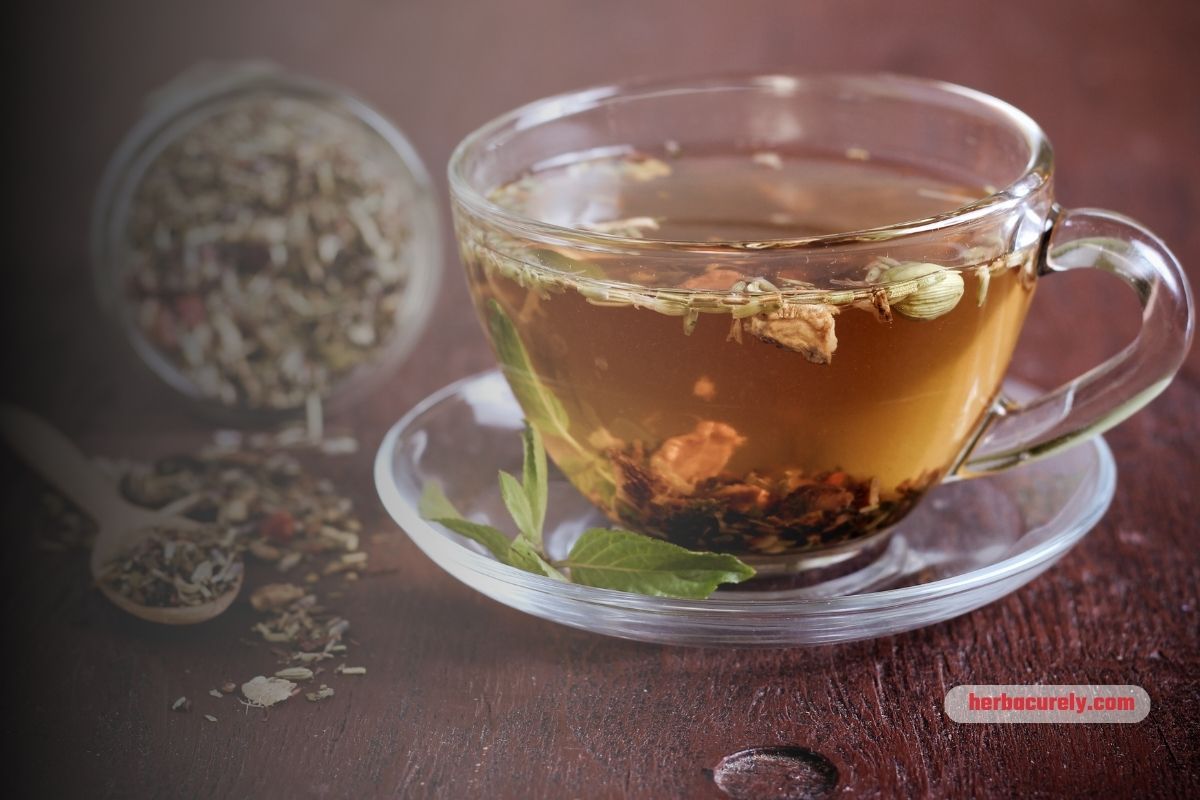In today’s fast-paced world, stress has become a common challenge for many. While there are various ways to manage stress, herbal teas offer a natural, soothing, and effective solution. Packed with calming properties, these teas can help relax the mind and body without the side effects of medications. In this comprehensive guide, we’ll explore the best herbal teas for stress relief, their benefits, how to prepare them, and tips for incorporating them into your daily routine.
Why Herbal Teas for Stress Relief?
Herbal teas, also known as tisanes, are made from dried herbs, flowers, fruits, or spices steeped in hot water. Unlike traditional teas (like black or green tea), herbal teas are typically caffeine-free, making them ideal for relaxation and stress relief. The natural compounds in these teas, such as antioxidants, flavonoids, and essential oils, can help reduce cortisol levels, promote relaxation, and improve sleep quality.
Benefits of Herbal Teas for Stress
- Calms the Nervous System: Certain herbs contain compounds that interact with the brain to promote relaxation and reduce anxiety.
- Improves Sleep: Many stress-relieving teas have sedative effects, helping you fall asleep faster and enjoy deeper rest.
- Reduces Inflammation: Chronic stress can lead to inflammation, and some herbal teas have anti-inflammatory properties.
- Natural and Safe: Herbal teas are generally free from artificial additives and can be a gentle alternative to pharmaceutical remedies.
Top Herbal Teas for Stress Relief
Here are some of the best herbal teas known for their stress-relieving properties, along with their benefits and preparation tips.
1. Chamomile Tea
Chamomile tea is one of the most popular herbal teas for stress relief. It contains apigenin, an antioxidant that binds to receptors in the brain, promoting relaxation and reducing anxiety.
- Benefits:
- Eases anxiety and promotes calmness
- Improves sleep quality, especially for those with insomnia
- Soothes digestive issues often linked to stress
- How to Prepare:
- Steep 1–2 teaspoons of dried chamomile flowers (or a chamomile tea bag) in 8 ounces of hot water for 5–10 minutes.
- Add honey or lemon for flavor, if desired.
- Best Time to Drink: Evening or before bed for optimal relaxation.
2. Lavender Tea
Lavender is widely known for its calming aroma, and lavender tea harnesses those same soothing properties. It’s particularly effective for reducing nervous tension and promoting mental clarity.
- Benefits:
- Reduces anxiety and emotional stress
- Supports restful sleep
- May alleviate headaches caused by stress
- How to Prepare:
- Steep 1 teaspoon of dried lavender buds in 8 ounces of hot water for 5–7 minutes.
- Strain and sip slowly to enjoy its calming effects.
- Best Time to Drink: Afternoon or evening to unwind after a long day.
3. Lemon Balm Tea
Lemon balm, a member of the mint family, has a mild lemony flavor and powerful stress-relieving properties. It’s known for its ability to uplift mood and reduce nervousness.
- Benefits:
- Decreases anxiety and promotes a sense of calm
- Enhances mood and cognitive function
- Supports digestive health, which can be disrupted by stress
- How to Prepare:
- Steep 1–2 teaspoons of dried lemon balm leaves in 8 ounces of hot water for 5–10 minutes.
- Combine with mint or honey for added flavor.
- Best Time to Drink: Morning or afternoon for a mood boost.
4. Peppermint Tea
Peppermint tea is refreshing and invigorating, with menthol that helps relax muscles and calm the mind. It’s particularly helpful for stress-related tension and digestive discomfort.
- Benefits:
- Relieves muscle tension and headaches
- Soothes digestive issues caused by stress
- Provides a refreshing, uplifting effect
- How to Prepare:
- Steep 1–2 teaspoons of dried peppermint leaves (or a tea bag) in 8 ounces of hot water for 5–7 minutes.
- Enjoy plain or with a touch of honey.
- Best Time to Drink: Anytime during the day for a quick stress-relief break.
5. Passionflower Tea
Passionflower is a powerful herb used traditionally to treat anxiety and insomnia. Its tea is excellent for calming an overactive mind and promoting restful sleep.
- Benefits:
- Reduces anxiety and nervousness
- Promotes deep, restorative sleep
- May help with stress-related irritability
- How to Prepare:
- Steep 1 teaspoon of dried passionflower in 8 ounces of hot water for 10 minutes.
- Strain and drink slowly for maximum effect.
- Best Time to Drink: Evening to prepare for sleep.
6. Ashwagandha Tea
Ashwagandha, an adaptogenic herb, helps the body adapt to stress by balancing cortisol levels. While often consumed as a supplement, ashwagandha tea is a soothing way to enjoy its benefits.
- Benefits:
- Lowers cortisol levels, reducing stress
- Boosts energy without overstimulation
- Supports overall mental and physical resilience
- How to Prepare:
- Use 1 teaspoon of ashwagandha root powder in 8 ounces of hot water, steeped for 10–15 minutes.
- Blend with milk or a sweetener for a creamy texture.
- Best Time to Drink: Morning or early afternoon to support stress resilience throughout the day.
How to Incorporate Herbal Teas into Your Routine
To maximize the stress-relieving benefits of herbal teas, consider these tips:
- Create a Ritual: Set aside 10–15 minutes daily to enjoy your tea mindfully. Sit in a quiet space, focus on the aroma, and sip slowly to enhance relaxation.
- Choose the Right Time: Select teas based on the time of day. For example, chamomile or passionflower is ideal for evening, while lemon balm or peppermint can be enjoyed during the day.
- Experiment with Blends: Combine herbs like chamomile and lavender or lemon balm and peppermint for enhanced flavor and effects.
- Stay Consistent: Drinking herbal tea regularly can amplify its stress-relieving benefits over time.
- Pair with Other Practices: Combine tea with meditation, deep breathing, or yoga for a holistic stress-relief routine.
Precautions When Using Herbal Teas
While herbal teas are generally safe, keep the following in mind:
- Allergies: Some people may be allergic to certain herbs. Start with small amounts to test for reactions.
- Medications: Herbs like ashwagandha or passionflower may interact with medications. Consult a healthcare provider if you’re on medication.
- Pregnancy and Breastfeeding: Some herbs, like chamomile, are safe in moderation, but others may not be. Check with a doctor before consuming.
- Quality Matters: Choose high-quality, organic teas to avoid pesticides and additives.
Where to Find High-Quality Herbal Teas
Look for herbal teas at:
- Local Health Food Stores: Many carry loose-leaf or bagged organic teas.
- Online Retailers: Websites like Mountain Rose Herbs, Adagio Teas, or Amazon offer a wide selection.
- Farmers’ Markets: Some vendors sell fresh, locally grown herbs for tea.
- Grow Your Own: Herbs like chamomile, peppermint, and lemon balm are easy to grow at home.
Conclusion
Herbal teas are a natural, effective, and enjoyable way to manage stress and promote relaxation. From the calming effects of chamomile to the adaptogenic power of ashwagandha, these teas offer a range of benefits to suit different needs. By incorporating them into your daily routine and pairing them with mindfulness practices, you can create a powerful stress-relief strategy. Start exploring these herbal remedies today and discover the soothing power of a warm cup of tea.
Call to Action: Try one of these herbal teas today and share your experience in the comments below! Which tea is your favorite for stress relief?

